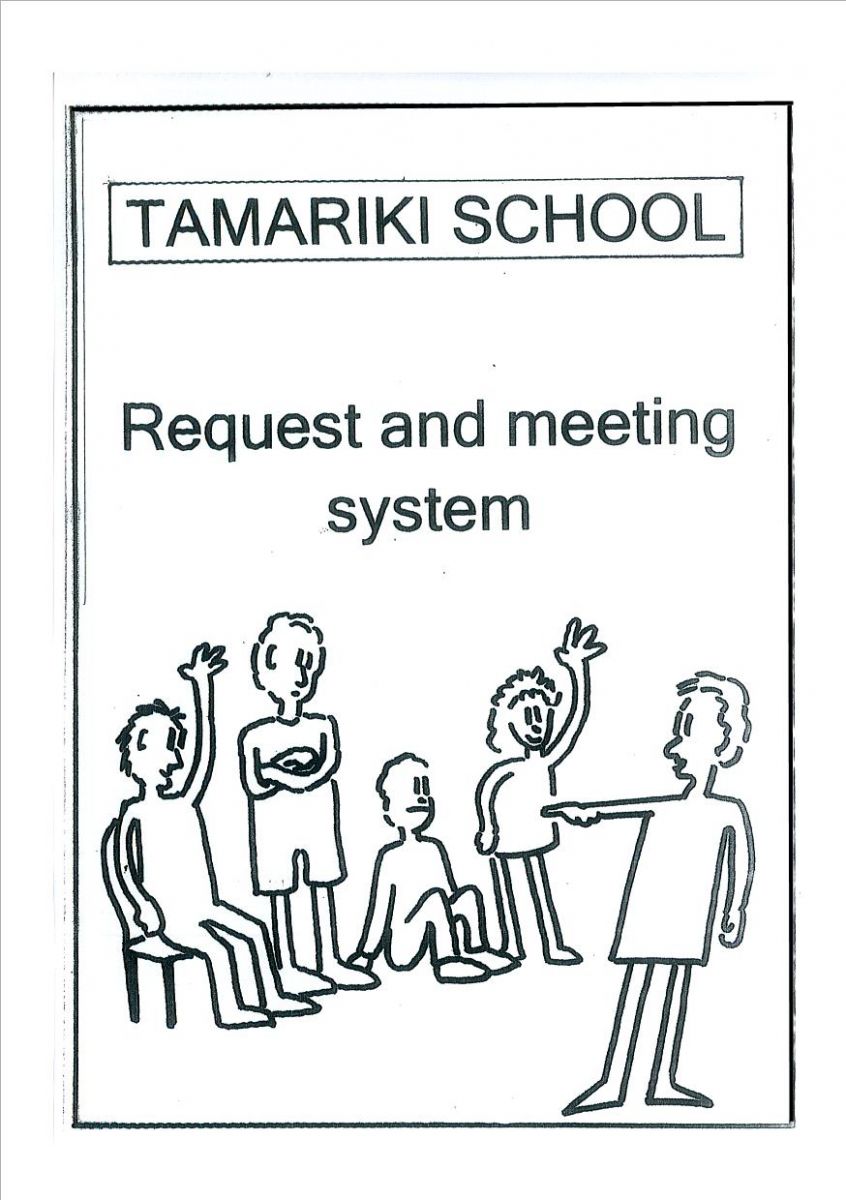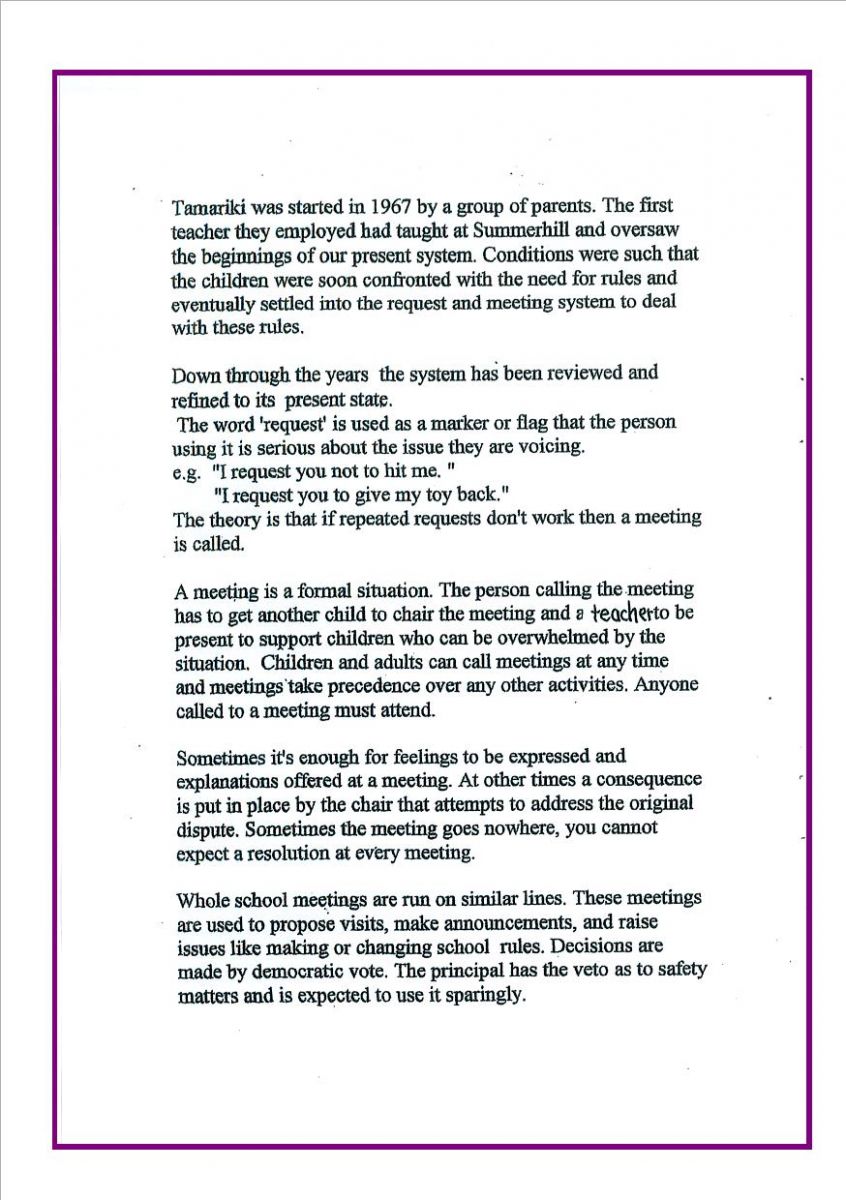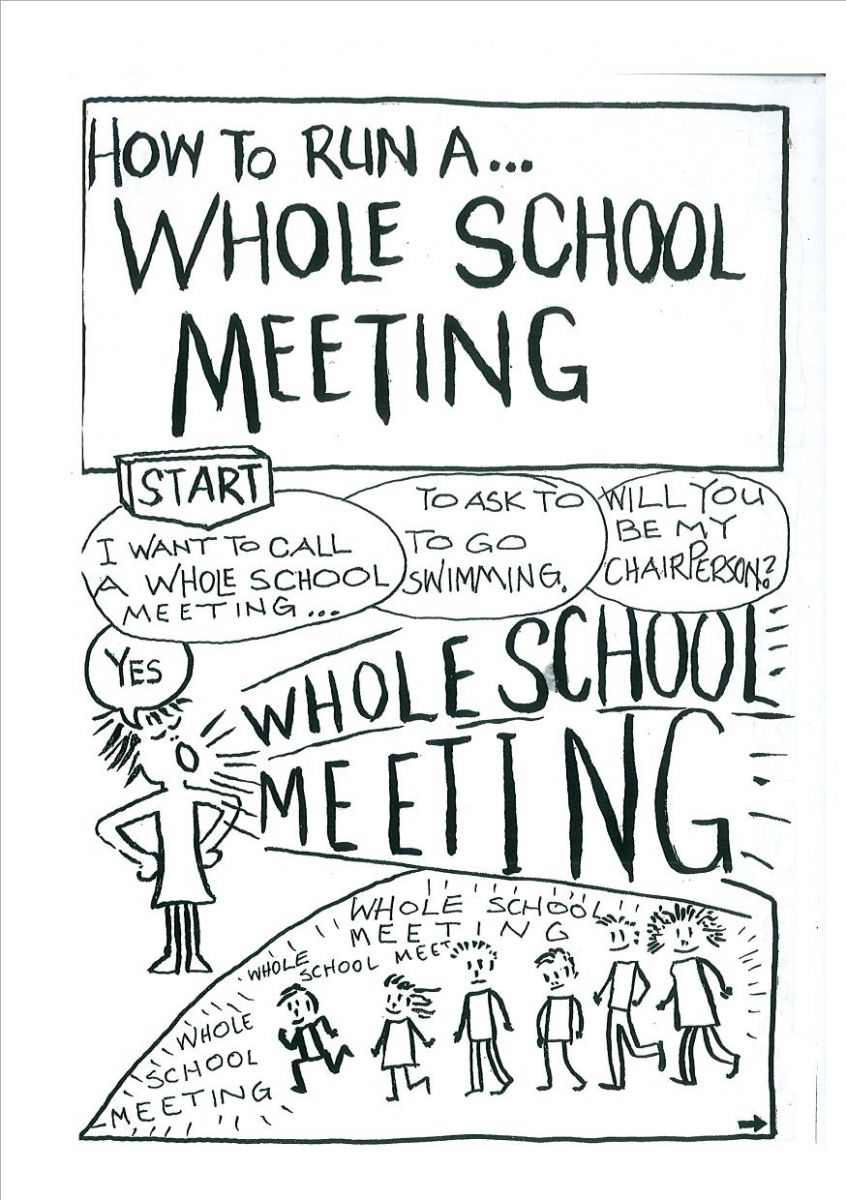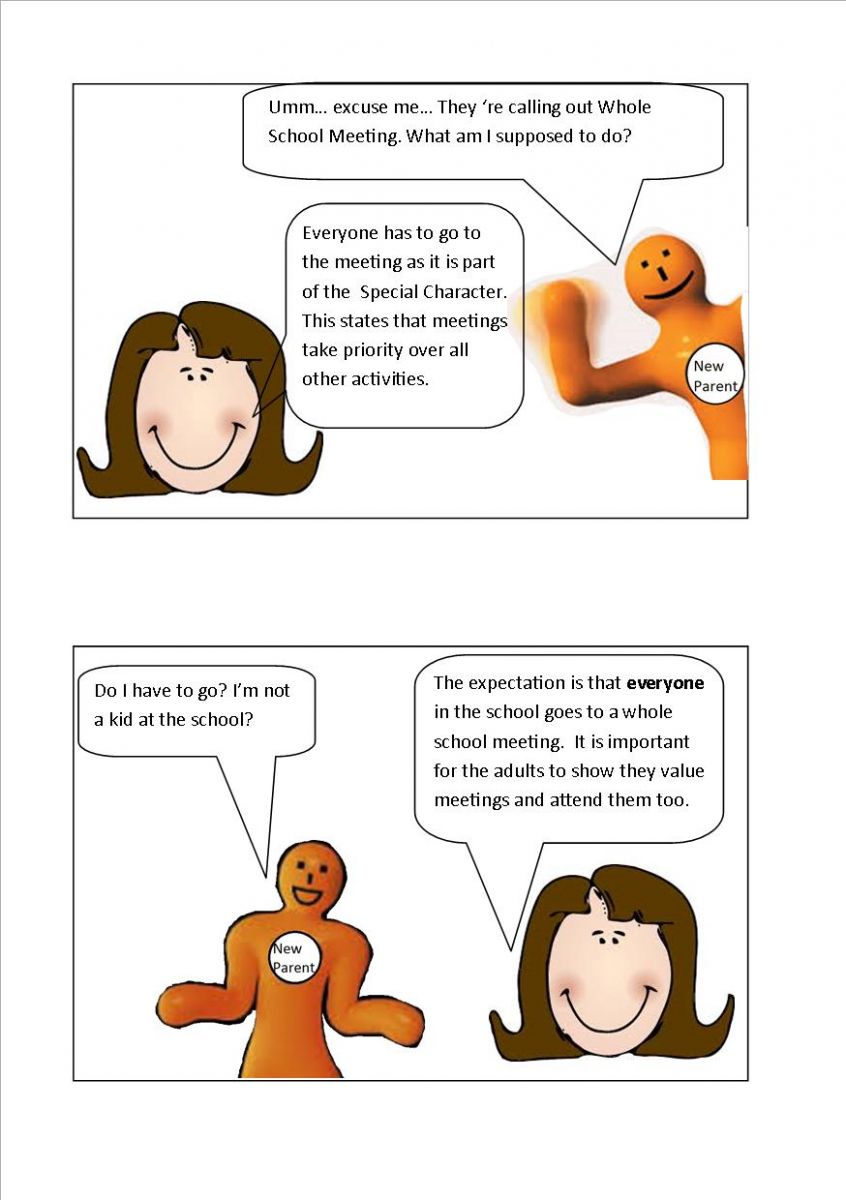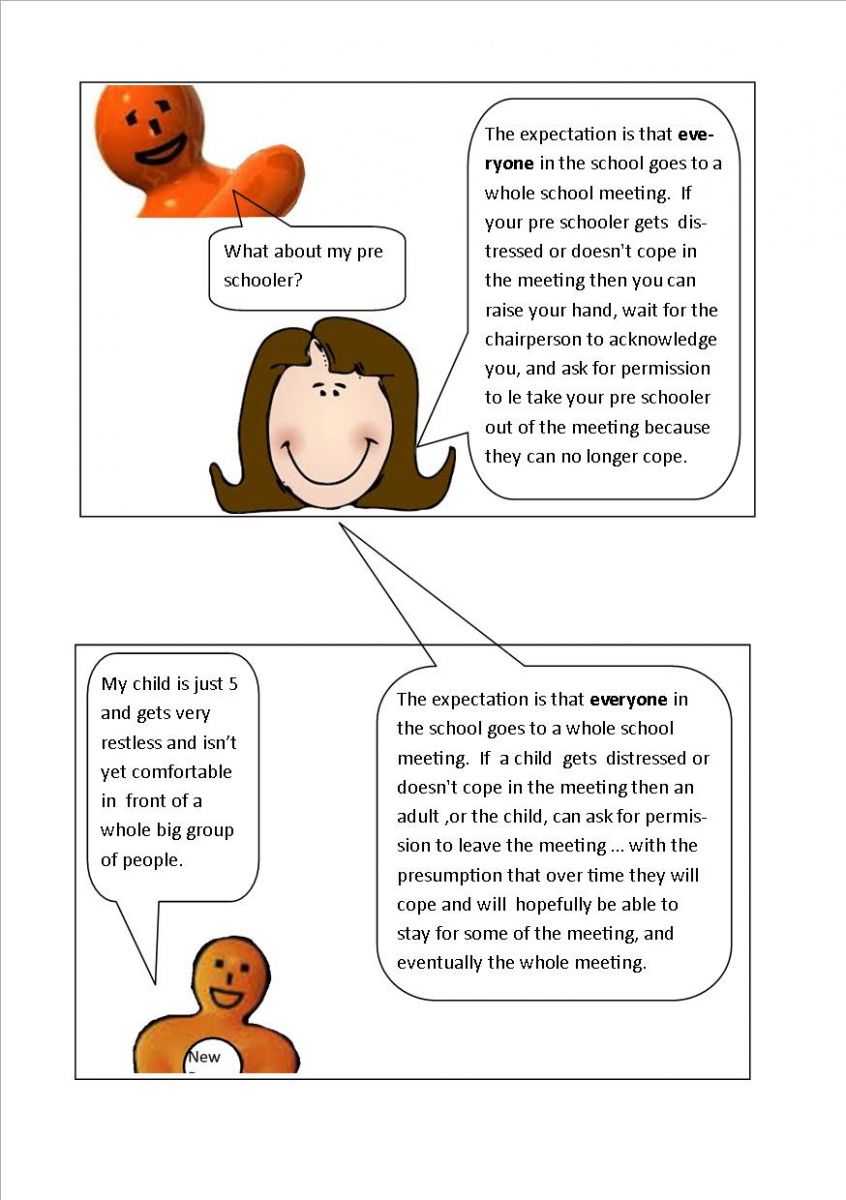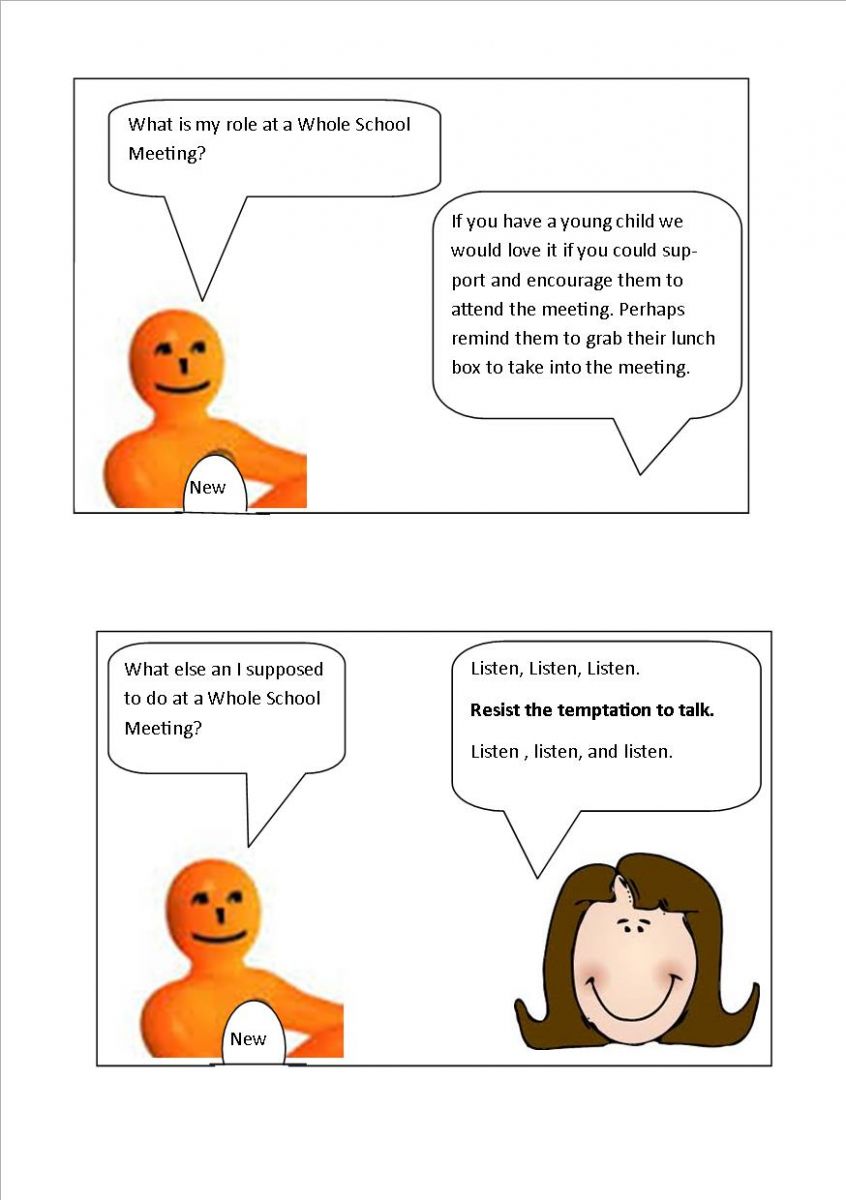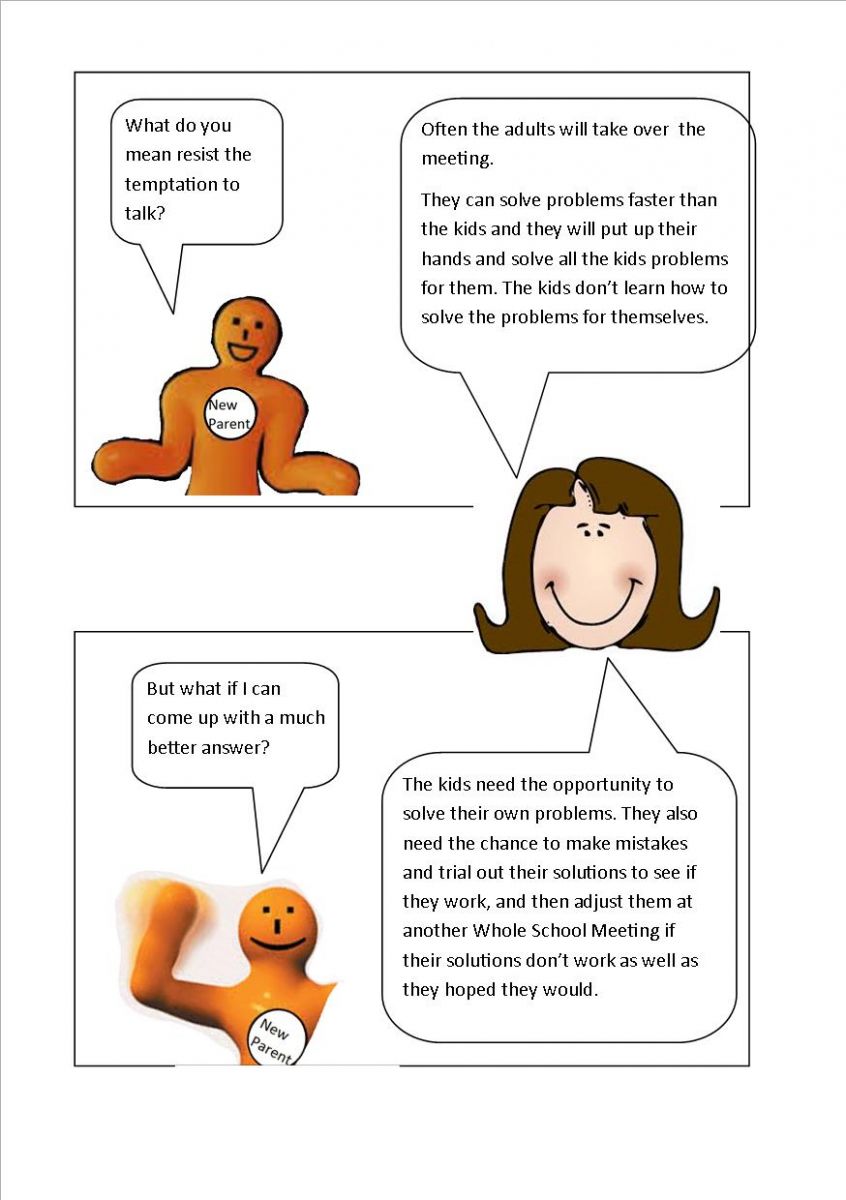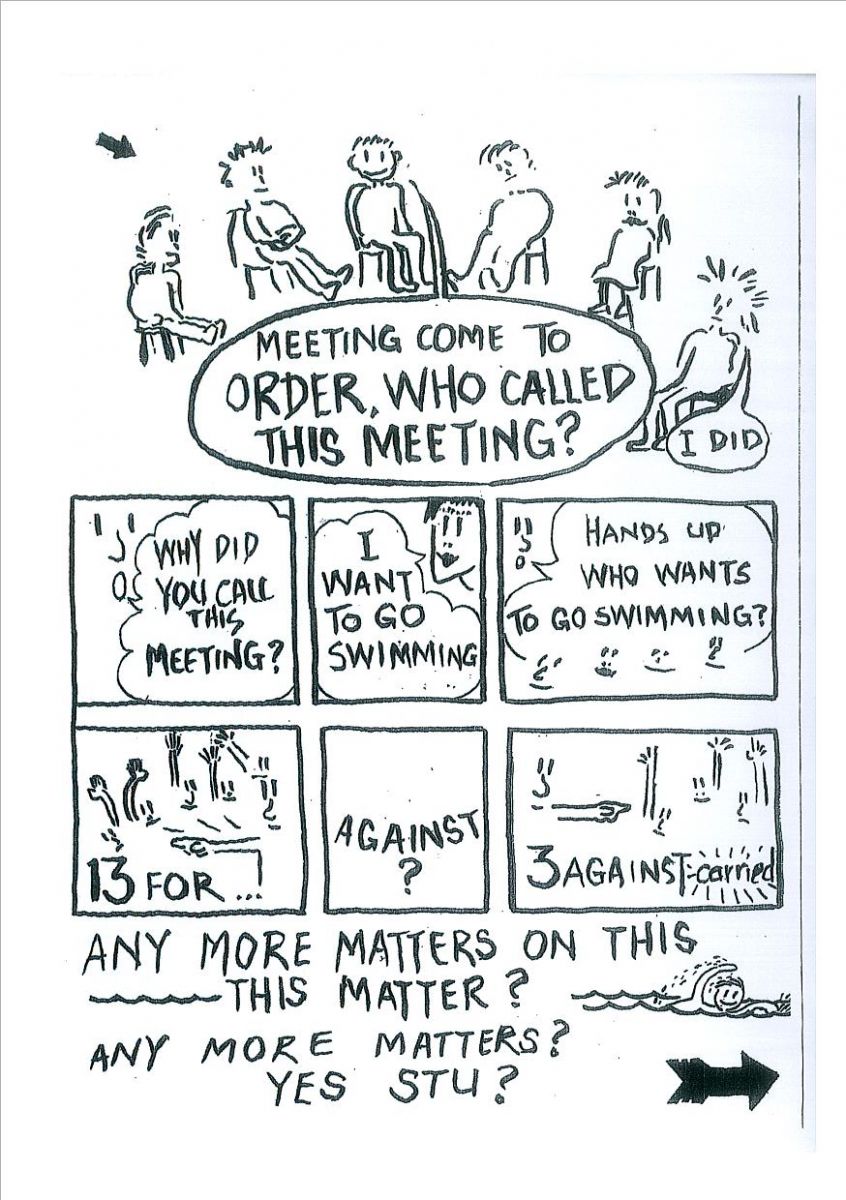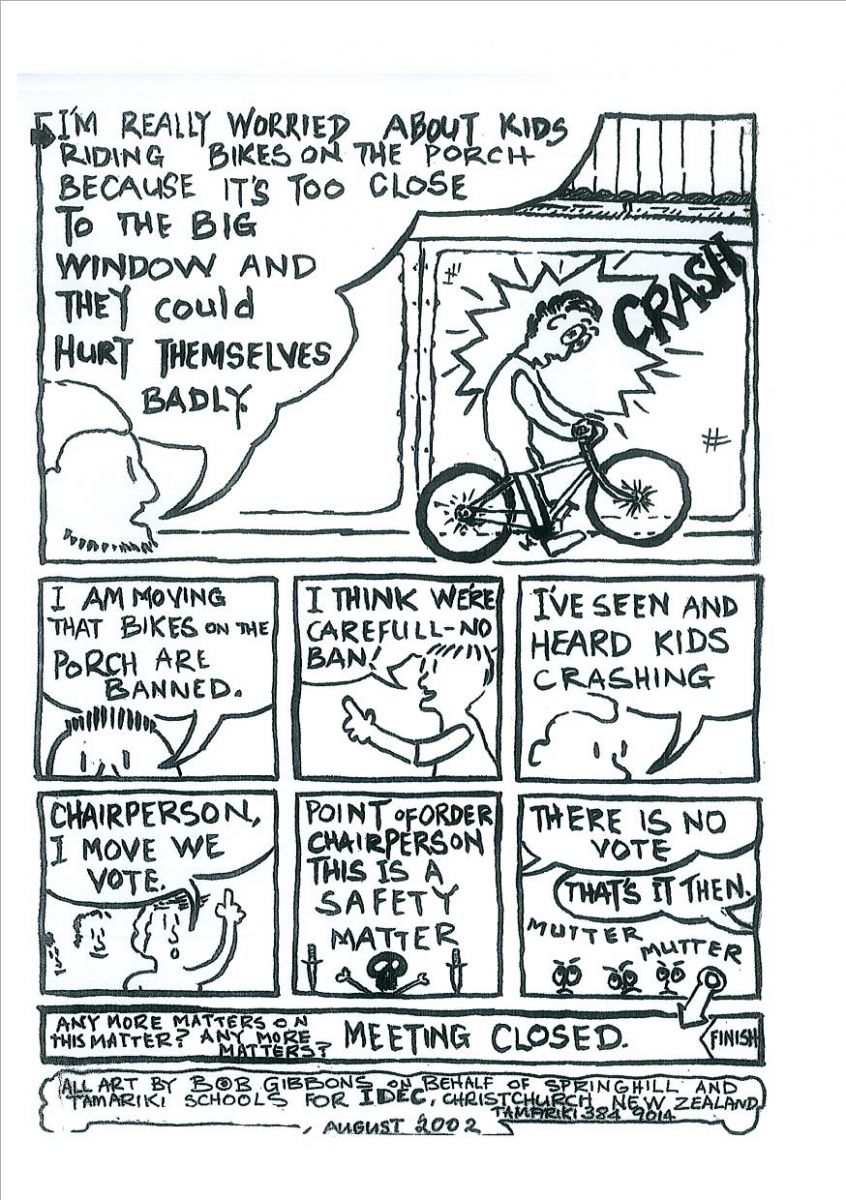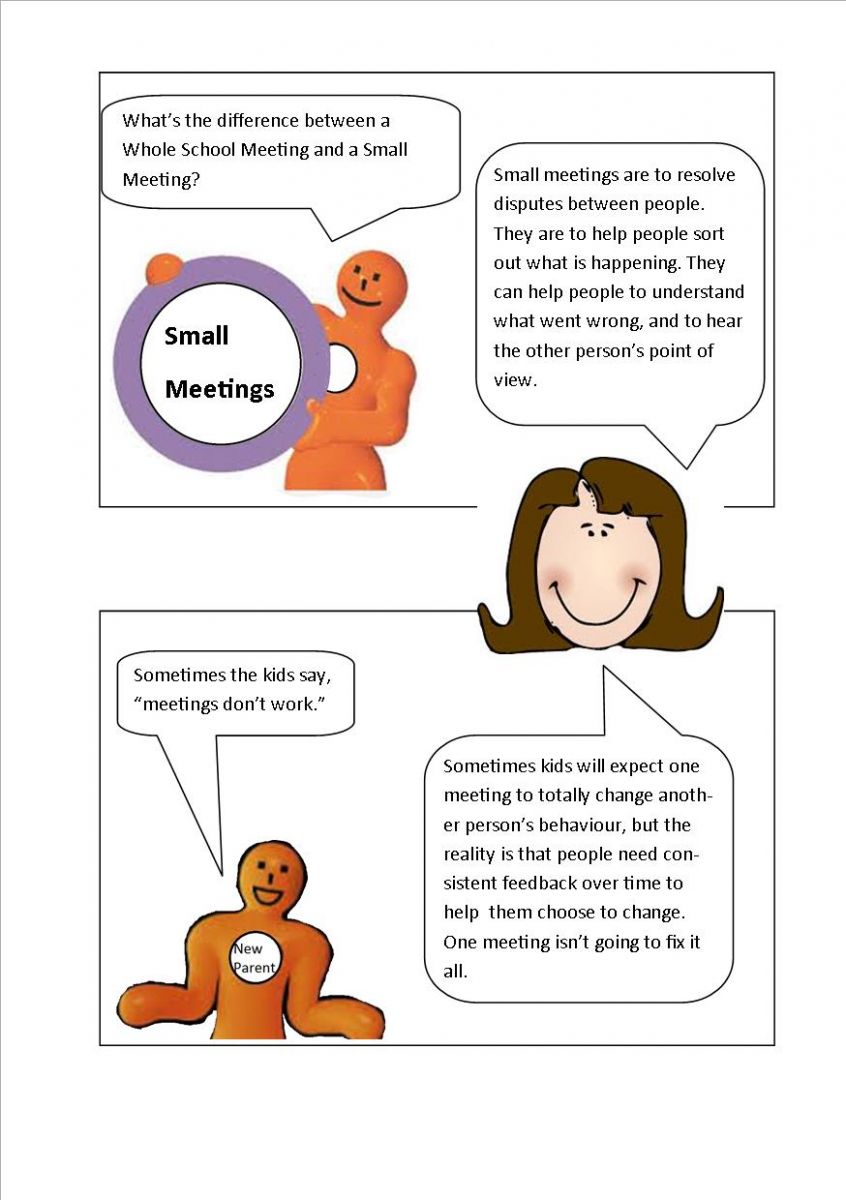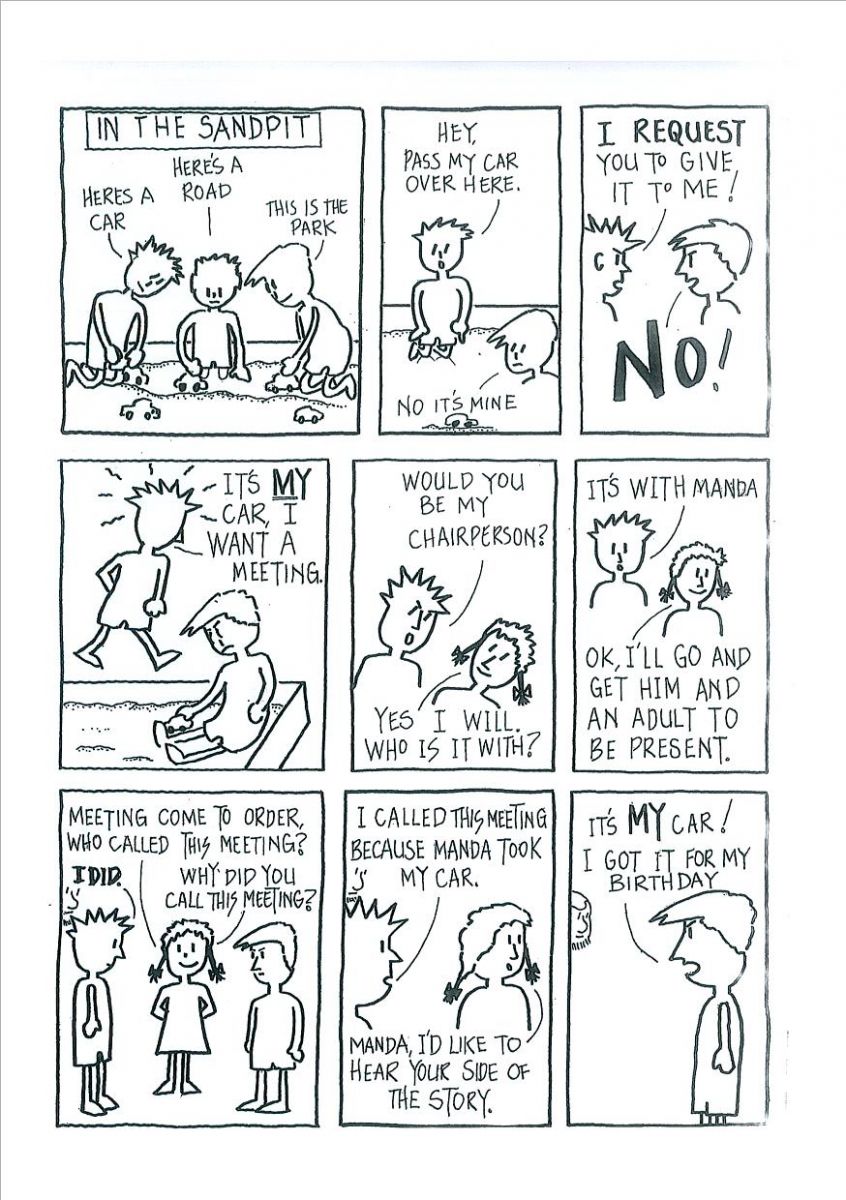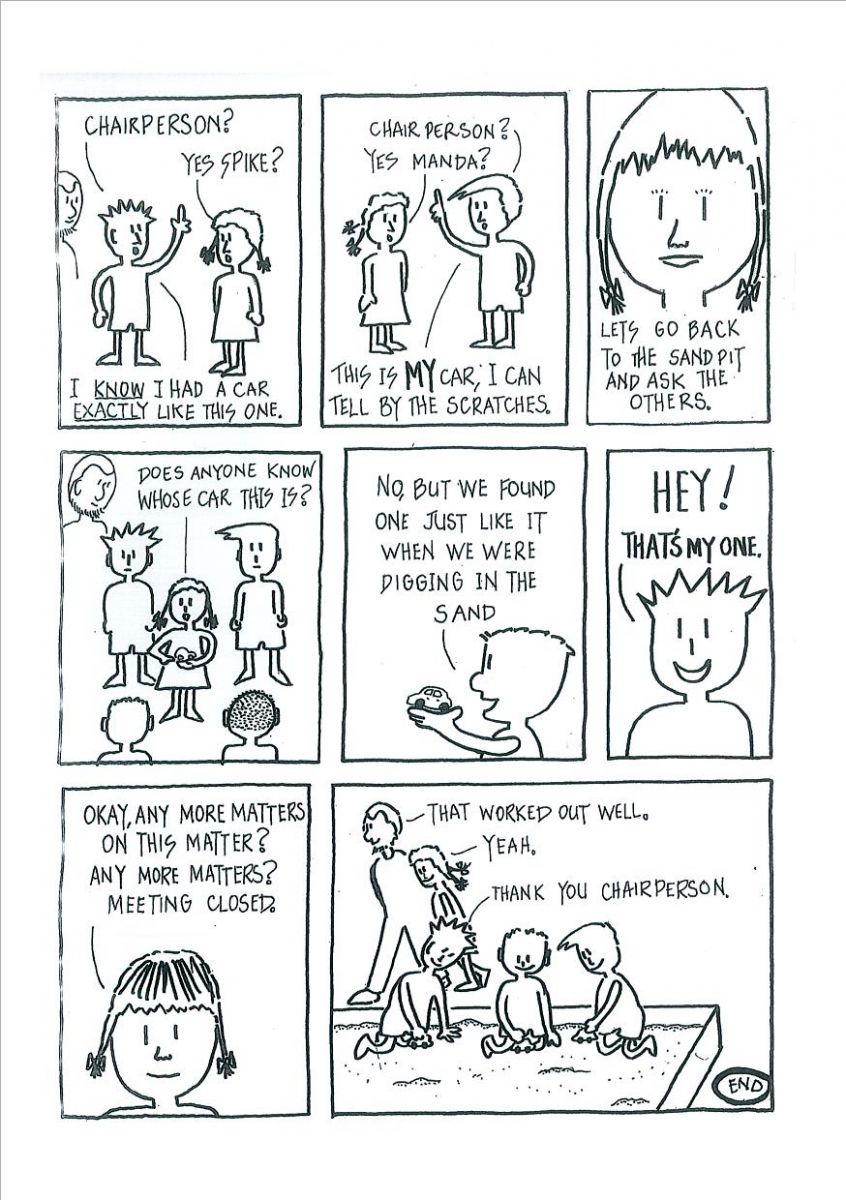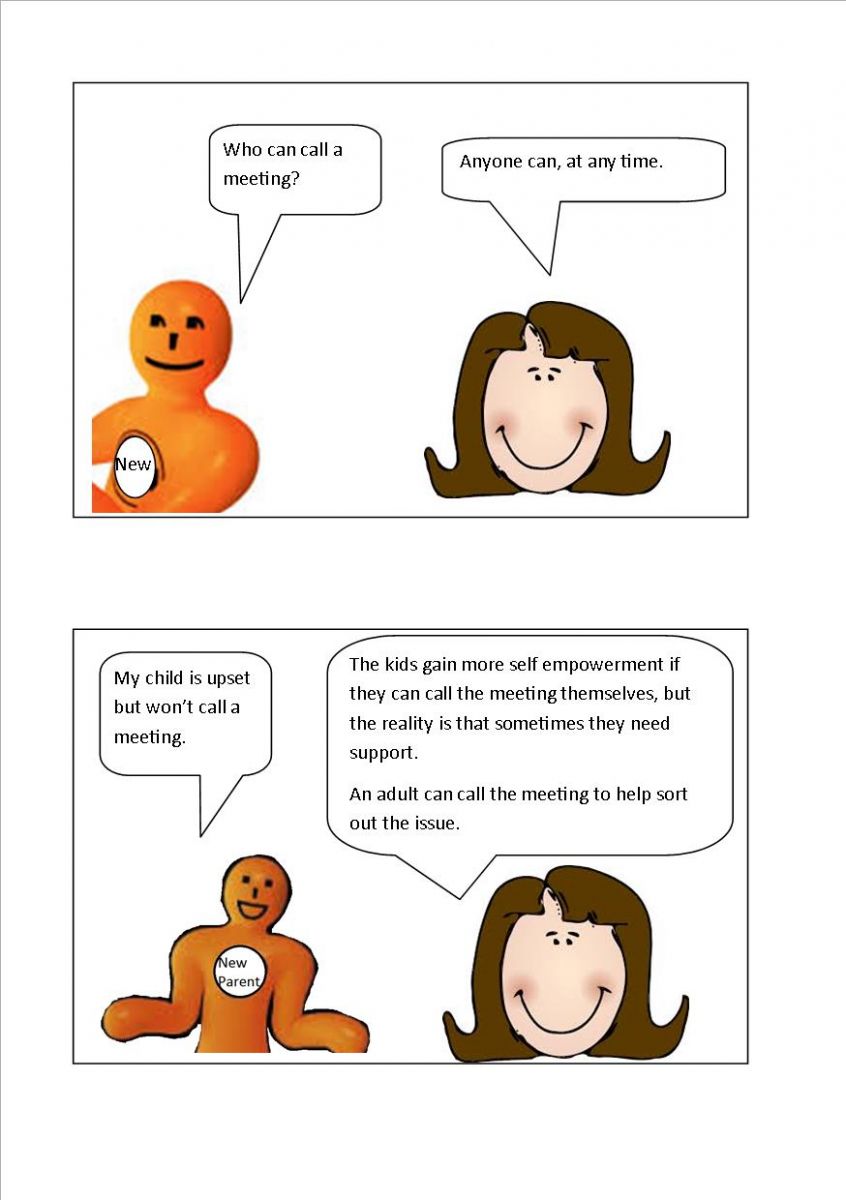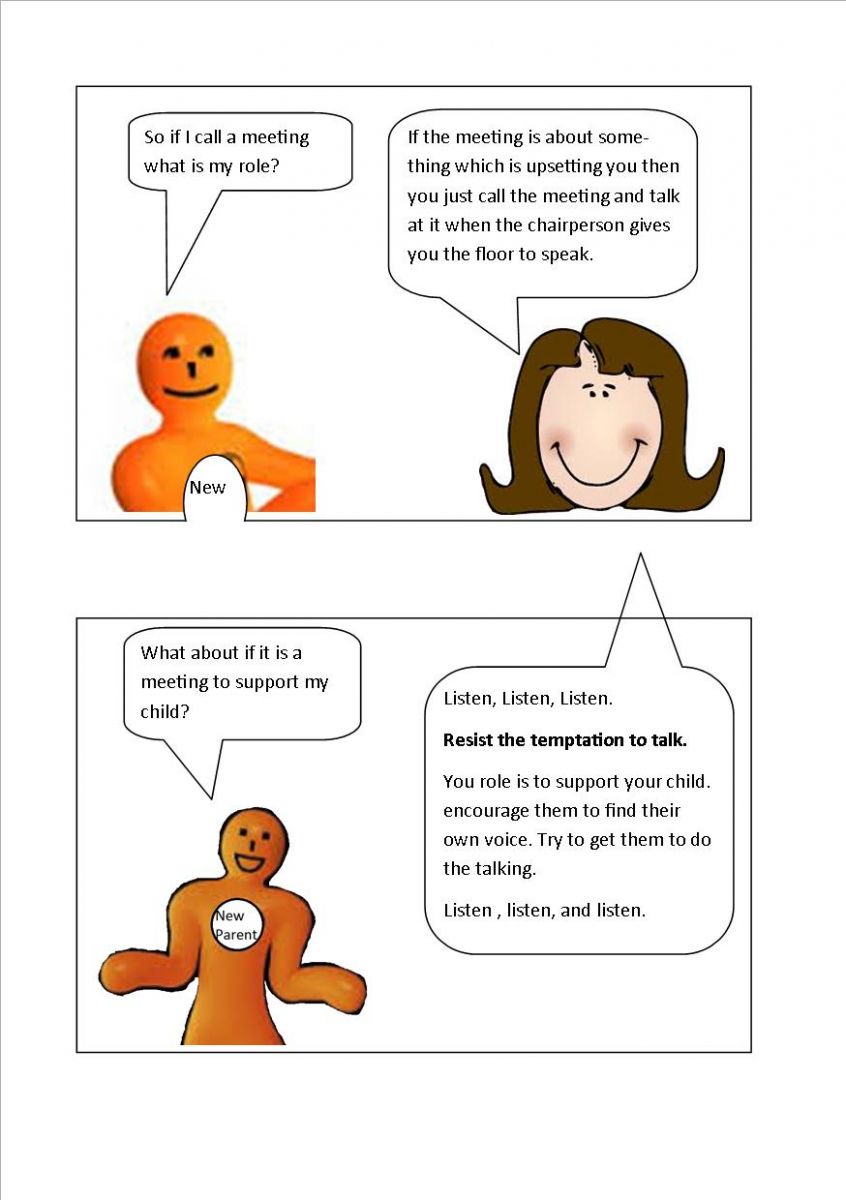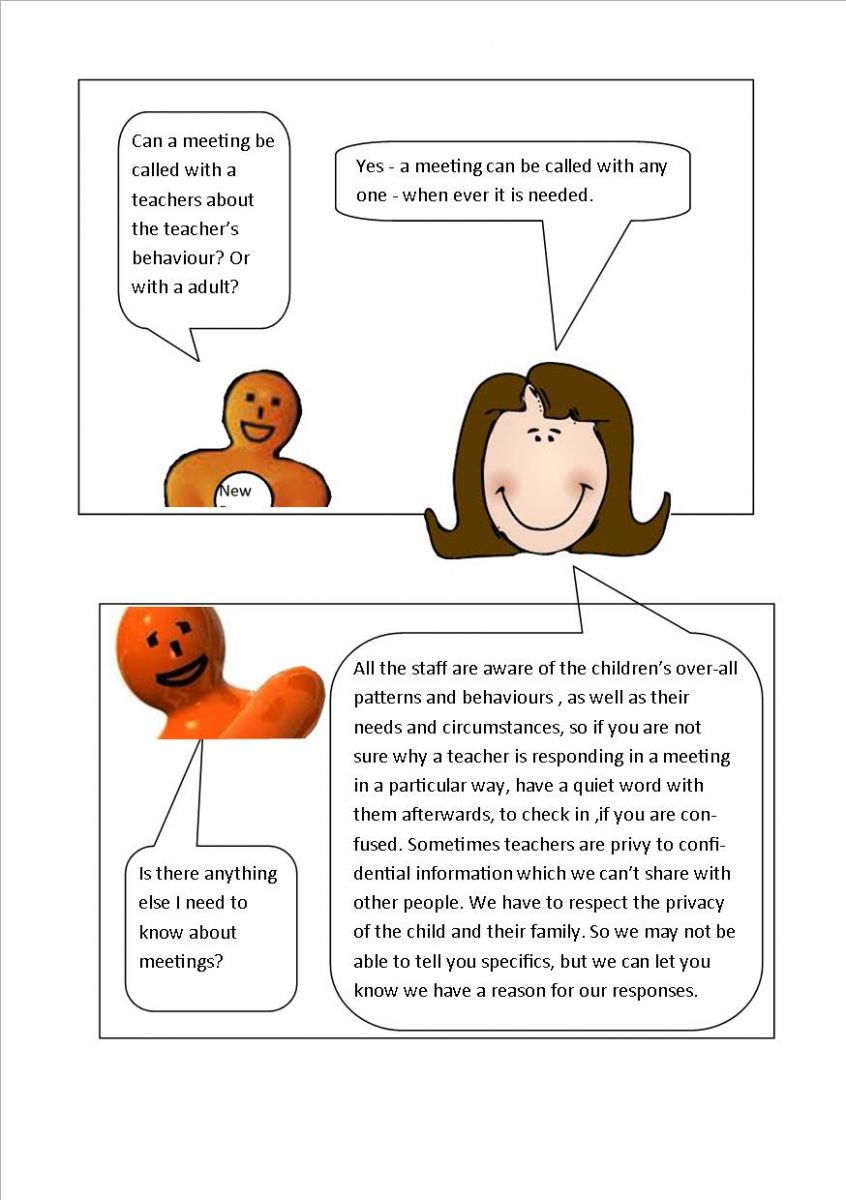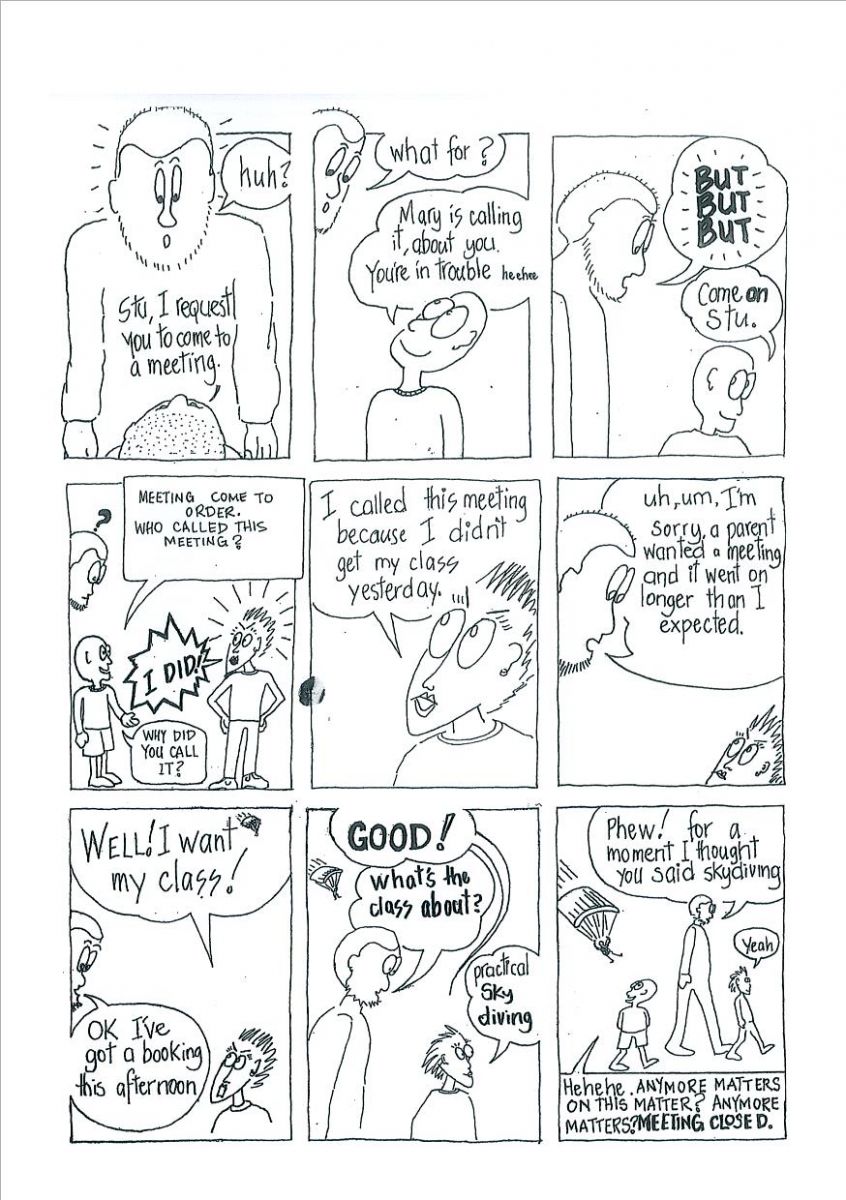The Meeting System
-
Meetings enable our school to function, they are used for decision making, and conflict resolution.
-
Small meetings help develop self awareness, awareness of other people, and our impact on each other.
-
Trips, and special events, are announced at whole school meetings and help everyone to know what is happening in the school.
Request System
The Request and Meeting Systems go hand in hand. When a child or adult finds some behaviour annoying or against school rules, they may request that the person stops that behaviour. For example, by saying ‘I request that you stop calling me that name’. If the behaviour does not stop or alter after a second request, the initiator is encouraged to call a meeting to address the behaviour of the person.
Small Group Meetings
Whole School Meetings
A child, parent or staff member may call a Whole School Meeting at any time. These are often called to let everybody know about school activities coming up (e.g. ski trip) or to discuss a school-wide concern or issue. Current school rules may require children to call a Whole School Meeting if they want to book a particular space. Most usually there is at least one Whole School Meeting each week.
One of the children is approached to be a chairperson or offers to be one, and then walks around the school letting everybody know that a whole school meeting has been called.
The Whole School Meeting is an essential part of the democratic process at Tamariki School. It under pins the functioniing of the entire school and is how we sort out issues, make school rules, announce trips, let people know about safty issues, and discuss major issues happening within the school. We appreicate it when parents support their child to understand and value this process. Please feel free to talk with staff about the value of Whole School Meetings and what they are used for.
Parents volunteering their skills. Sometimes parents would like to offer their skills and do a session (or several) with the students, eg, art, music, dance, woodwork, making a specific project, science. The Whole School Meeting is where the adult would ask permission from the whole school to book a particular space to use for the project. Please feel free to ask a staff member to help support you in this process if you are unsure/ or if you would just like some help. The staff are usually able to help you work out how to present an idea to the students, work out a suitable time, and suggest which area could suit the needs.
Meeting Format
A very simple format is used in both small group and whole school meetings…
- The chairperson checks everyone is there that needs to be.
- The chairperson opens the meeting by asking ‘Meeting come to order, who called this meeting?’ The initiator responds.
- Discussion is held, with people raising their hand and waiting for the chairperson to select them before they speak. Motions may be put forward for voting on.
- When the discussion seems to have finished, the chairperson will ask ‘Any more matters on this matter?’.
- Once the matter has been dealt with, the chairperson will ask ‘Any more matters?’.
- When all matters have been dealt with, the chairperson will declare the meeting closed.
Refusing to come to meetings
If a child is outright refusing to be ‘part of the school’ and come to meetings, the staff may discuss this with their caregiver, and possibly come to an informal arrangement with their caregiver/parents where the parent chooses to take the child home until the child is prepared to participate and come to a meeting to address their behaviour.
It is important that parents' understand, and respect, the meeting system process and realise that it under-pins how our school functions.
If a child is repeatedly, and over a long term, refusing to come to meetings it is possible that Tamariki School is not the right environment for their child. Sometimes parents need to support their child to overcome their anxieties, and help them to attend meetings. Over time we hope that the child will realise that meetings help them sort out issues and will see the benefit in them. Sometimes a more ‘formal’ stand-down process may be used especially if the child is repeatedly refusing to use the school's management systems i.e. come to meetings and participate in solving behaviour issues. This may lead to suspension if a child totally refuses to participate in the school’s system and take responsibility for the behaviour. Flexibility is given when the child is very young or new to the school.
